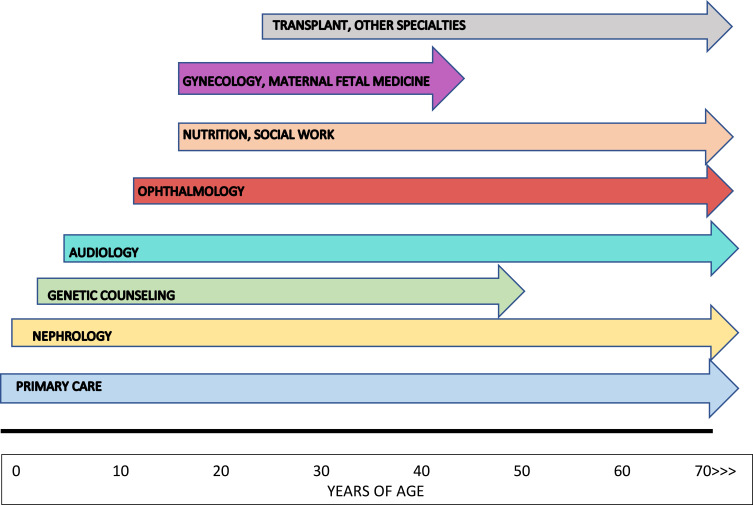Figure 1.
Multidisciplinary care for Alport syndrome – a timeline. Primary care providers become involved at birth and maintain their role in care throughout the life of the individual. Referral to nephrology should occur in the first 1–2 years of life. Genetic counselors have an early role in diagnosis and subsequently in providing information on transmission of Alport syndrome to potential offspring. Audiology and ophthalmology frequently begin their clinical relationships with affected individuals in childhood and adolescence. The input of nutritionists and social workers becomes increasingly important as kidney disease progresses. Gynecologists assist in providing contraceptive guidance to XX individuals receiving treatment with blockers of the renin-angiotensin-aldosterone system (RAAS) and, along with maternal-fetal medicine specialists, collaborate in the care of mothers with Alport syndrome during pregnancy, both before and after kidney transplantation. Transplant providers join the care team as affected individuals approach kidney failure and the need for kidney transplantation. Referral to cardiologists or other specialty providers may be necessary for some affected people.

